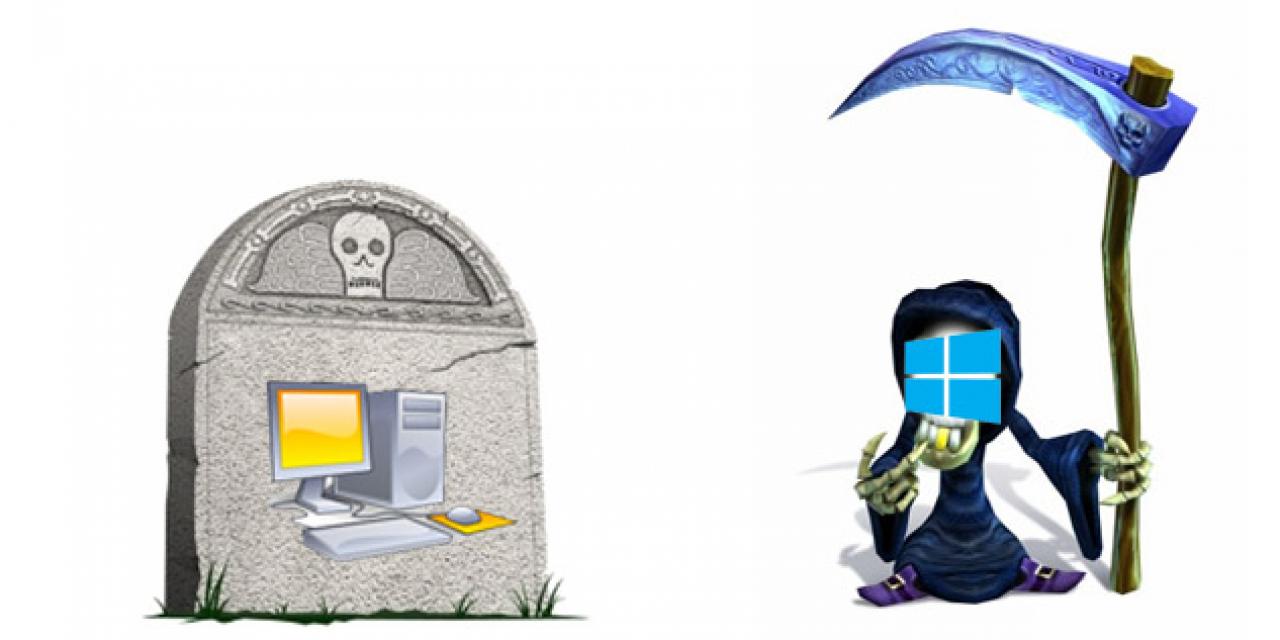
PC and consoles used to be the main (if not the only) contenders in the battle for gamers’ hearts and wallets. Despite the abbreviated name however, when people said PC gamers, they really meant Windows gamers, as that's what 99 per cent of people were using. However, it seems that the future of this Microsoft paradise is clouded by recent news about Windows 8 as well as fan reactions.
Even Vista didn't drum up this much hate from consumers. While it was slow and had issues with drivers, memory protection and DRM, you never had Gabe Newell coming out and saying it was a "catastrophe," or Notch saying that he would rather Minecraft was never made compatible with it. Of course one of these men wasn't the household name he is today when Vista was released, but the point is, as much as people hated Vista, they really hate Windows 8.
But why? We talked about this a little bit the other day [link to news article] where one of our kind readers laid out in detail some of the problems with the system. While they aren't quite as bad as some people have made out, they do still represent a worrying trend that could lead to the end of Windows as the world's dominant PC gaming OS.
The issue at the heart of the Windows 8 debocle is that it's moving into a more closed system. With the Windows Store, like Apple's App Store or Valve's Steam, Microsoft has to approve content before it's given the go ahead to be available to the public. If you get the thumbs up, your game will be available not only on Windows 8, but Windows Phones and Windows RT Tablets.
This isn't just for games either, but all forms of software. If you want your calculator app, your football scores, your news reader program on Windows 8's Metro tile interface, then it has to go through the Windows Store.
Worrying some people is the fact that Microsoft has already blocked some titles from being added to its store. Skyrim has been blocked because of its adult content. That is likely to change as certificate ratings are raised on the store, but for now, mature content is hard to find.
Fortunately as it stands with Windows 8, those that want to bypass the store do have a workaround: they can just install it on the desktop, which acts like a refined Windows 7 but without the start bar. In that part of the OS, you can install whatever you like, but it misses out on resizing and live tiles.
It also misses out on perhaps the biggest advantage with this system, the added sales and publicity from being on the big cross platform marketplace for the OS – though developers do need to pay Microsoft a 30 per cent cut of whatever sells through the store.
So as it stands, Windows 8 doesn't make it impossible to game, it just means that if you want a guarantee that all your games will work, you need to accept that you might need to forgo some of the main Metro features.
So If Windows 8 itself doesn't kill PC gaming, why is everyone kicking up so much of a fuss? It's because of what the move to a more closed system means; what it represents. PC gaming has always been an open platform for development. Mods could be freely installed – something that the Windows Store doesn't support at all – hardware could be changed, overclocking could be done. Having a gaming PC represented doing things your own way, while having the ease of use that came with a polished package.
With Windows 8 Microsoft is moving in a much more restricted direction. The worry is that Windows 8 might be just a transitional operating system. It might be the first in a line of steps that end up with an app store and not much else. Will that kill PC gaming for good?
Fortunately it doesn't look that way. Can anyone think of a platform with a reputation for being more open than the PC? While it might not quite have the user friendliness of its corporate rivals, Linux is growing into a gaming OS in its own right. A few years ago you'd have been lucky to find any big name developers producing compatible content. Now all you need to do is check out Steam's ongoing Linux Beta, or every single Humble Bundle to see that people are beginning to consider Linux as a viable platform.
That means the chicken and egg scenario has already played out. Whether the games or the gamers came first to Linux doesn't matter, what does is that it holds the potential to become the gaming system of the future.
For now Windows 7 will suffice and Windows 8 will probably be ok. The future however depends on Microsoft. If it takes more notes out of Apple's playbook and closes itself off like the Xbox to protect its interests, instead of allowing people to use their hardware like they want to, it could find itself with a large audience migrating to greener Linux pastures.
So guys where do you stand? While Windows 8 might not be the greatest thing for gaming, it's hardly the roadblock that some people proclaimed it to be. It's a bit faster than Windows 7 too and has some new features for compatible software.
Are you going to buy Windows 8? Do you see yourself switching to Linux in future? Let us know below.
